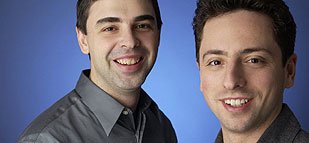This as-told-to essay is based on a conversation with Blake Haxton. It has been edited for length and clarity.
This Friday — five days after smiling on the podium at the Paris Paralympics — I’ll be back at work, crunching numbers behind a desk in Ohio.
It hasn’t really sunk in yet.
I haven’t consumed much of the coverage because I was in a bubble. Yet all the things I’ve seen and the feedback I’ve received from those back home following or watching have been exceptional.
To be three-hundredths of a second out of the silver-medal position was tough, but I had a really good race in the VL2 200-meter canoe event. Coming into the final, I was seeded third, and that’s where I ended up.
I’m going back to my office job
Now if Sunday had been my last race and I was sitting here at 33 years old doing this sport as my whole career, it’d be a dramatic shift back to the US.
I’m lucky, though, that I’ve never struggled with the post-Paralympic or Olympic depression that athletes talk about. I’ve always had something to do and, more importantly, something meaningful to do.
As a high-yield bond analyst at Brandywine Global Investment Management, I figure out how much companies and assets are worth in numerical terms. I figure out how much revenue they make, what their costs and interest rates are, and how much in goods they have. I put that together to get a picture of how the business is actually doing and then decide whether we should lend money to them.
My Outlook calendar helps me manage all my daily tasks, bookended by my morning and evening training sessions on the Scioto River, halfway between my office and home.
At Brandywine, we all sit in one communal room with a paddling machine breaking up the space. A couple of afternoons a week, you’ll find me on the machine, paddling away while others work.
Some days, this still feels like a far-fetched dream to my younger self.
A flesh-eating disease meant I needed to have my legs amputated
Growing up, my dad was in finance so I became familiar with investment management, and I was always an athlete, eventually becoming the captain of my high school rowing team.
Yet everything changed for me when I contracted necrotizing fasciitis my senior year. The flesh-eating disease caused the bacteria to multiply, kill my tissue, and ultimately require my legs to be amputated.
All I thought about was if I could get out of the hospital and lead a normal life moving forward. Really fundamental elements of life were now question marks. I assumed I’d never compete athletically in anything again. Time to give that up.
If you had told me medaling, let alone competing at the Paris Paralympics, was in my future, I’d have laughed you out of that hospital room.
I eventually found my way back to the water, returning to rowing before ultimately transitioning to canoe.
And now here I am, a three-time Paralympian and two-time medalist.
One thing I quickly learned and want the average person to know is there’s a distinction between an Olympian and a Paralympian. I’m not an Olympian. I’m a Paralympian. And that’s great — it’s a distinction that matters and is meaningful.
Having said that, I really wish the average American could see how much encouragement and support I’ve received from my Olympic teammates over the years. When we are not in the Olympics and Paralympics, we go to the same world championships and train parallel to each other.
I’m always optimizing both at work and in training
Most Team USA athletes say if you can swing it, work on your career outside of competing because then it makes the transition out of your athletic career a lot easier.
There is a lot of overlap in creating a training plan and analyzing a business’ value. It’s almost the same exercise. You’re always trying to optimize for the right thing.
For me, that has meant transitioning from a 10-minute rowing race to a 50-second canoe sprint, driving drastic changes in my training plan over the last several years. More time in the weight room and more explosive movements were the biggest adjustments.
While I don’t make enough money as a Paralympic athlete to support myself full-time, I also don’t want to. I enjoy my job and want to continue building a career as an investment analyst.
For someone who acquires a disability later in life or is growing up with a disability, I’d encourage them not to be so black-and-white about whether a job is made for someone with a disability or not.
Instead, be more generic and say: Alright, what does my disability really mean? What can I do, and what am I good at?
Yes, I can do my job from a wheelchair, and that’s great, but it’s also something I’m interested in and pretty good at.
You might have to be creative, the first person to do something, or not have a good model for what you want to do or who you want to become.
Look where it got me — I’m eager to return to work as a Paralympic medalist, I avoided post-Paralympic depression, and I’m already looking ahead — excitedly so — to the LA 2028 Games.
It has certainly paid dividends.
Read the full article here

















